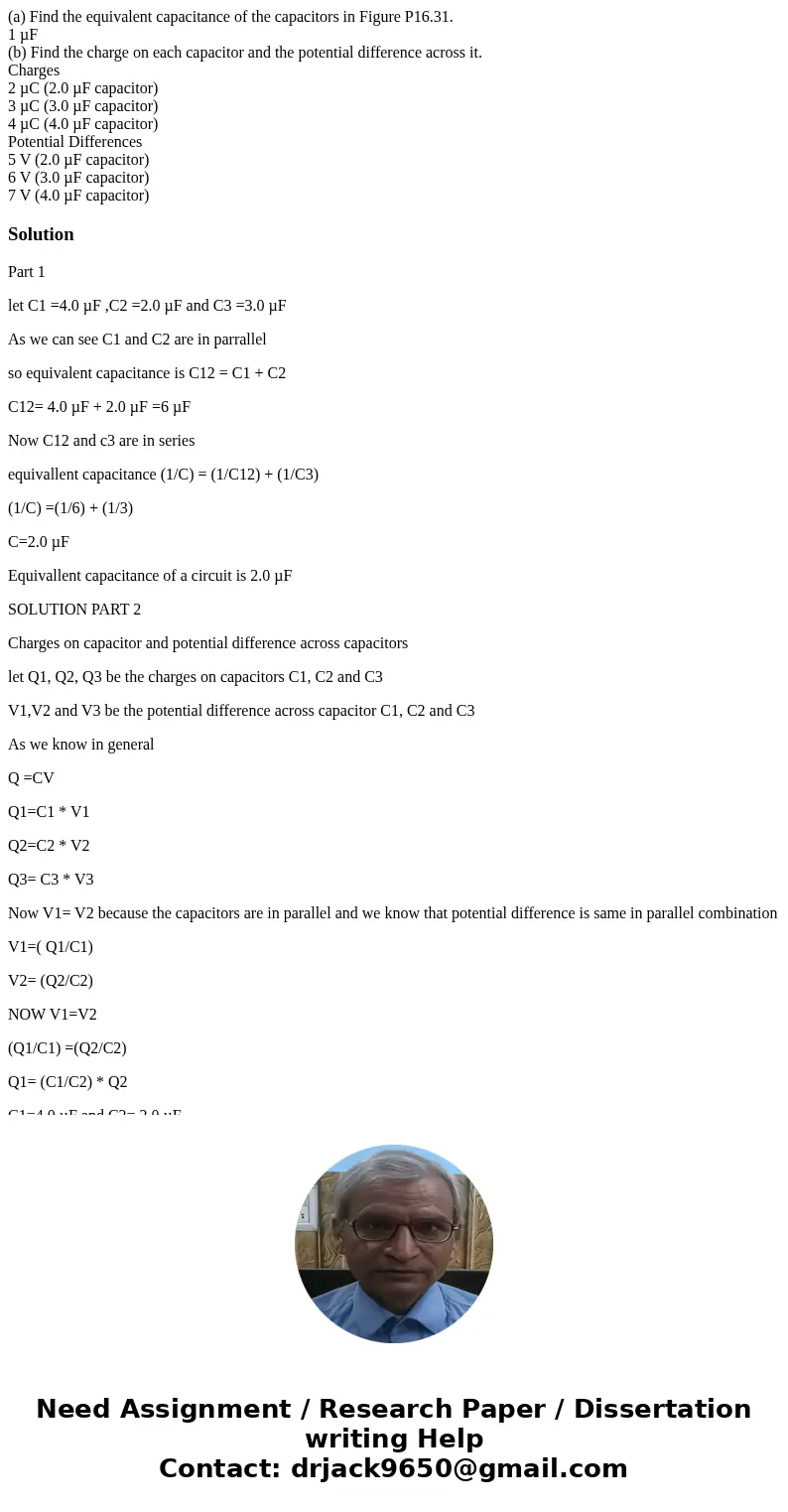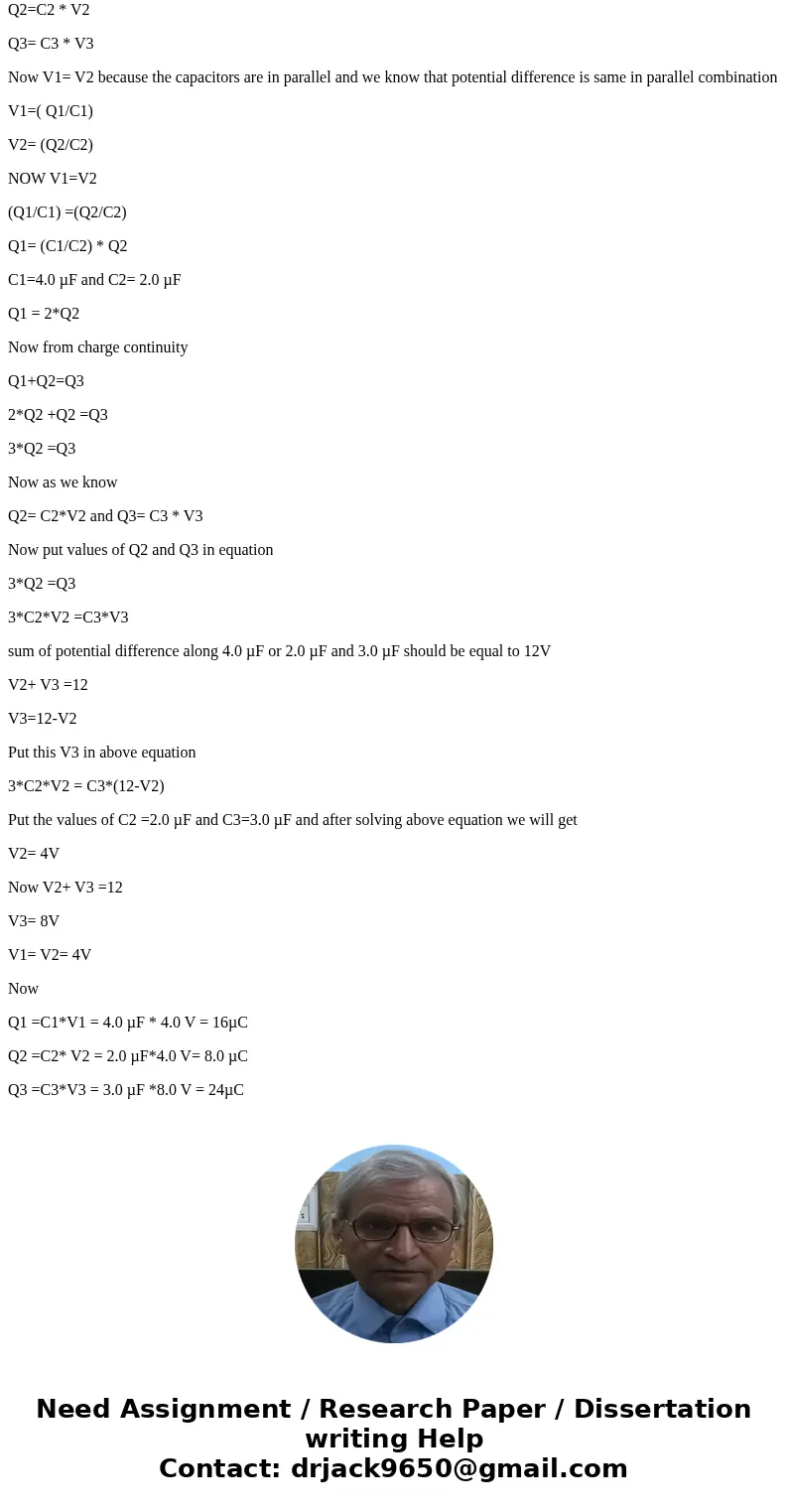a Find the equivalent capacitance of the capacitors in Figur
(a) Find the equivalent capacitance of the capacitors in Figure P16.31.
1 µF
(b) Find the charge on each capacitor and the potential difference across it.
Charges
2 µC (2.0 µF capacitor)
3 µC (3.0 µF capacitor)
4 µC (4.0 µF capacitor)
Potential Differences
5 V (2.0 µF capacitor)
6 V (3.0 µF capacitor)
7 V (4.0 µF capacitor)
Solution
Part 1
let C1 =4.0 µF ,C2 =2.0 µF and C3 =3.0 µF
As we can see C1 and C2 are in parrallel
so equivalent capacitance is C12 = C1 + C2
C12= 4.0 µF + 2.0 µF =6 µF
Now C12 and c3 are in series
equivallent capacitance (1/C) = (1/C12) + (1/C3)
(1/C) =(1/6) + (1/3)
C=2.0 µF
Equivallent capacitance of a circuit is 2.0 µF
SOLUTION PART 2
Charges on capacitor and potential difference across capacitors
let Q1, Q2, Q3 be the charges on capacitors C1, C2 and C3
V1,V2 and V3 be the potential difference across capacitor C1, C2 and C3
As we know in general
Q =CV
Q1=C1 * V1
Q2=C2 * V2
Q3= C3 * V3
Now V1= V2 because the capacitors are in parallel and we know that potential difference is same in parallel combination
V1=( Q1/C1)
V2= (Q2/C2)
NOW V1=V2
(Q1/C1) =(Q2/C2)
Q1= (C1/C2) * Q2
C1=4.0 µF and C2= 2.0 µF
Q1 = 2*Q2
Now from charge continuity
Q1+Q2=Q3
2*Q2 +Q2 =Q3
3*Q2 =Q3
Now as we know
Q2= C2*V2 and Q3= C3 * V3
Now put values of Q2 and Q3 in equation
3*Q2 =Q3
3*C2*V2 =C3*V3
sum of potential difference along 4.0 µF or 2.0 µF and 3.0 µF should be equal to 12V
V2+ V3 =12
V3=12-V2
Put this V3 in above equation
3*C2*V2 = C3*(12-V2)
Put the values of C2 =2.0 µF and C3=3.0 µF and after solving above equation we will get
V2= 4V
Now V2+ V3 =12
V3= 8V
V1= V2= 4V
Now
Q1 =C1*V1 = 4.0 µF * 4.0 V = 16µC
Q2 =C2* V2 = 2.0 µF*4.0 V= 8.0 µC
Q3 =C3*V3 = 3.0 µF *8.0 V = 24µC


 Homework Sourse
Homework Sourse